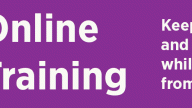Personal development, Self-improvement, Marketing
Is the crisis over; what now?
As the charity sector adapts to the new normal following the COVID-19 pandemic, now is the time to reevaluate which services your beneficiaries need and what your board's priorities are.
It has been a real learning experience for many in the sector dealing with the issues that the COVID-19 pandemic has raised. Some organisations have struggled to survive with much reduced financial and human resources; often in situations where the demand of their beneficiary pool has increased substantially.
Other organisations have been pleasantly surprised that board members who sometimes appear rather distant have rolled up their sleeves and got stuck in at a more operational level. This has been countered by a few CEOs and Senior management teams feeling somewhat exasperated by board members demanding more and more reports and assurances that the organisation is “okay!”
I worked with one CE who was actually bemused by the increase in volunteer support and government funding that became available enabling them to increase services substantially during the crisis period.
These have all been changes that have not been expected or planned. The result is that for many organisations and boards they have had to react when they would quite naturally have preferred to work with well thought out strategic and operational plans. Trying not to panic, to understand if and how their organisations continue to survive (are we a going concern? How long can we survive? What cuts do we have to make and what impact would that have on our users?) are just some of the concerns I hear often.
Some of the questions that organisations are no doubt asking themselves as we see evidence of this crisis continuing for some time to come, include:
- What are the board’s priorities as the organisation moves into the new norm?
- Do we need to continue, and if so formalise, the board-SMT partnership that may have been developed at the start of the pandemic? What are the terms of reference of this partnership and how would they report to the main board?
- Has the senior management team (operations) got all the resources that it needs to work on current and emerging priorities?
- In terms of strategy and activities: have these changed? Do we know what our beneficiaries’ immediate and shorter termed needs are?
- Do we know what is now available (or no longer available) and how these changes affect us and our beneficiary poll? So what are current government policies, resources and requirements?
It may be time for organisations to have a ‘lessons learnt’ session, meetings with staff, volunteers and beneficiary representatives; develop short term plans (revising longer term strategies also?) and really honestly and openly agree ways of working using the skills and resources available at all levels including the Board.
Jacqueline Williams is co-author of The Charity Trustee’s Handbook published by DSC



